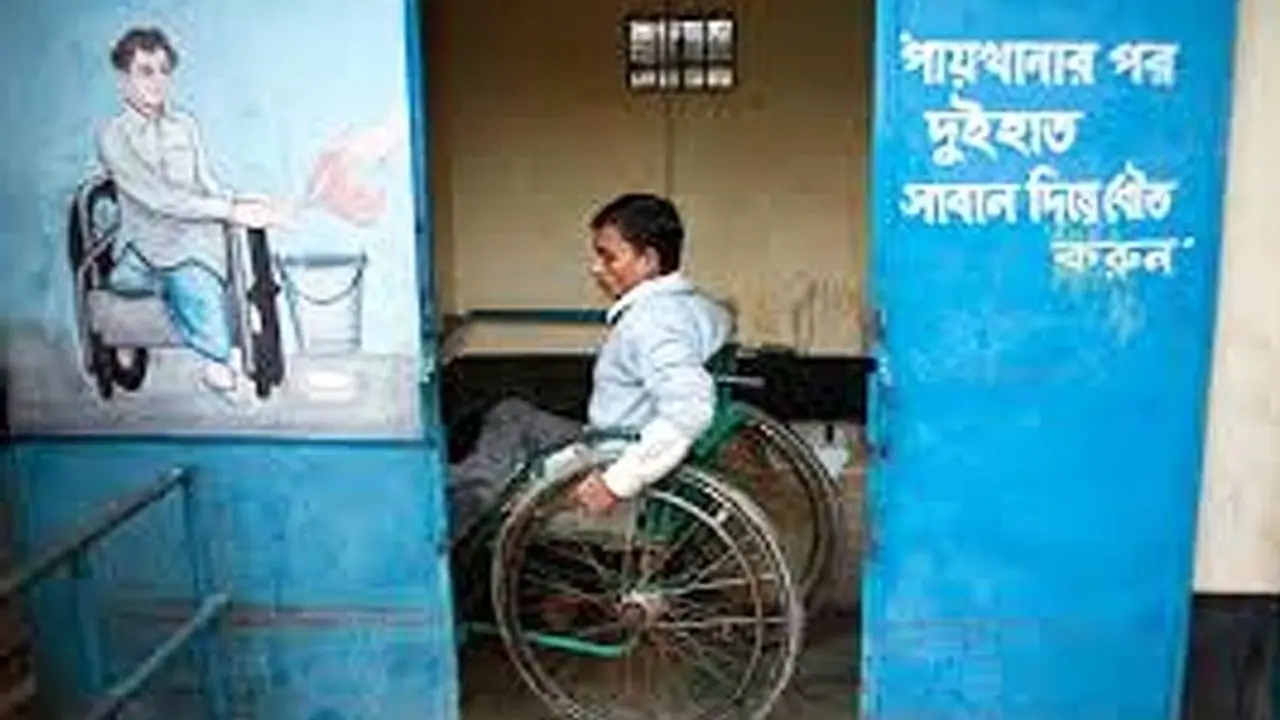At a time when the entire globe is suffering the COVID-19 and the lockdown restrictions which is making human lives tough, it's time to re-define and re-think the idea of disability and the notions related to the same
At a time when the entire globe is suffering the COVID-19 and the lockdown restrictions which is making human lives tough, it's time to re-define and re-think the idea of disability and the notions related to the same.
Lockdown in India has affected the lives and livelihoods of millions of people with disabilities. phenomenon which remains invisible even being the largest minority group of population in India. According to Census 2011, there are about 26.81 million persons with disabilities, comprising of 56% males and 44% females, with 31% in urban areas and 69% in rural areas.
This is almost like a total population of some European countries. There is a need for major conceptual shift in the disability theory away from the ‘medical’ model to the ‘social’ model that can stimulate the new approaches to the research and understanding of disability as a social and political experience and not just medical health issue. People with disabilities are merely seen as individuals with flawed body but their human identity has never been acknowledged by the world of 'normal people'.
Life of PWDs amidst Corona Outbreak
I interviewed people with visually impairment and locomotive disability to understand and learn their experiences in the lockdown. It is found out that the response of government is ignorance towards the situation of their suffering in this crisis. While the word 'Social distancing' is becoming a new normal for people with disabilities who are dependent for even their basic daily needs and activities it only adds to their vulnerabilities. Sharing about his experience, Deepak a 24-year-old student of Delhi University who is currently in his home town Sultantpur, UP said, "For us, the lack of government support and people's attention towards our issues is making us feel as a second class citizen in our own homeland, the media is busy in their daily prime shows but there has been little done towards raising issues of people with disabilities. I am dependent on caregiver for my daily needs but there has been acknowledgement of how we are living our life".
According to a recent study by NCPEDP It is found out that there is a general lack of accessible information around COVD-19. Most people have not been able to access helplines. Moreover, there is no dedicated helpline for persons with disabilities which makes it harder for them, especially people who are deaf / hard of hearing. At a time when online shopping of essential services is benefitting people it was revealed in this study that e. NCPEDP’s survey revealed that 67 % of persons with disabilities interviewed have no access to doorstep delivery of essentials by the government. Only 22% have the access to delivery of essentials. This not only reflects the failure of our system which fails to recognize people with disabilities but a collective failure of our societal system where we still live in a binary of 'Normal' and 'Abnormal'. Apart from accessibility, the education and schooling for people with disabilities is largely being affected and our system has continuously to focus on an inclusive environment for that. For visually impaired students it is not possible to attend virtual classes as it is not accessible but there have been no constructive solutions for the same. Talking about the problems with online education, Dinesh a visually impaired student told me "Online education is not accessible for me. Also, even if we try to learn that technology it is not sustainable in the long run and it should also be kept in mind that majority of disabled don’t even have access to phone or computers. Hence, it is clearly a policy failure to acknowledge our issues and giving is importance as 'Normal' students.
Women with disabilities are doubly disabled and this is where the larger role of intersectionality plays where they get marginalization because of their gender as well as disability. In lockdown women with disabilities are suffering from sexual as well domestic violence and most of the cases get unreported due to the family pressure and the lack of importance and priority.
Livelihoods have always been a major concern for PWDs, majority of PWDs work in unorganized sectors and due to the lockdown, they are suffering the most. there is no financial stability and most of PWDs don’t get a job in private companies because of the existing prejudice. There has been no policy or an intervention on sustainable livelihoods policy for them.
Redefining Disability- The way forward
For centuries, people with disabilities are facing discrimination and various forms of physical violence. While in India they define caste, class, gender and other forms of discrimination, structural oppression disability has largely being ignored. There is no enough research or the attention of media and the world of acknowledging it as a form of structural oppression. The discrimination against a person with disability is getting 'normalization' in our society that we sometimes don’t even acknowledge our privilege and disability-phobia around us. Disability is as political as any other structural oppression. The socio-political angle of understanding and defying disability is overtaken by idea of 'Charity' and sympathy for disabled individuals.
As they say that every crisis is an opportunity, in this sense, COVID-19 crisis is an opportunity to understand, reflect and re-define disability according to the disabled perspective and keeping in mind the socio-economic and political model associated with it.
About the author:
Prakhar Sharma, from Tata Institute of Social sciences is a Master’s in Social work and a researcher on disability and disability rights activist
